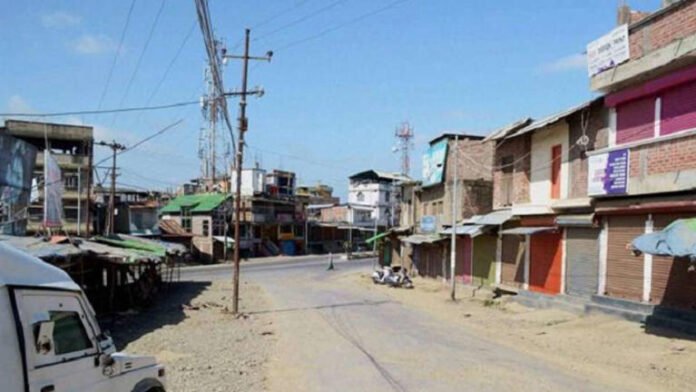The eastern region of Nagaland has been plunged into a state of disruption and uncertainty as demands for a separate state gain momentum, leading to widespread shutdowns and disturbances. The call for separate statehood, driven by long-standing grievances and aspirations for greater autonomy, has sparked protests and strikes, paralyzing normal life in the region and highlighting underlying tensions within the state.
The demands for a separate state in eastern Nagaland are rooted in historical grievances and perceptions of neglect and marginalization by successive state governments. The region, comprising districts such as Mon, Tuensang, and Longleng, has often felt sidelined in the political and developmental processes of Nagaland, leading to feelings of alienation and discontent among its inhabitants.
The recent shutdowns and disturbances in eastern Nagaland are a manifestation of these simmering grievances, as residents seek to draw attention to their demands for a separate state. The shutdowns, enforced through calls for strikes and protests, have brought normal life to a standstill, with shops, businesses, and educational institutions remaining closed and transportation services disrupted.
The impact of the shutdowns on the daily lives of people in eastern Nagaland has been profound, with residents facing hardships in accessing essential goods and services. The closure of shops and markets has led to shortages of food and other basic necessities, while disruptions to transportation have hindered mobility and access to healthcare facilities. The prolonged shutdowns have also taken a toll on the local economy, with businesses suffering losses and livelihoods being adversely affected.
Moreover, the unrest in eastern Nagaland has heightened tensions within the state and strained relations between different communities. The demand for separate statehood has drawn both support and opposition from various quarters, leading to polarization and divisions within society. The situation has been further exacerbated by incidents of violence and clashes between protestors and security forces, raising concerns about the potential for further escalation and unrest.
In response to the shutdowns and disturbances, the state government has made efforts to engage with stakeholders and address the concerns of residents in eastern Nagaland. Talks have been held with representatives of civil society organizations and tribal bodies to discuss the demands for separate statehood and explore avenues for resolving the underlying grievances through dialogue and negotiation.
However, finding a resolution to the demands for a separate state in eastern Nagaland is a complex and challenging task, requiring careful consideration of political, social, and economic factors. While the aspirations of the people in the region for greater autonomy and self-determination must be acknowledged and respected, any decision regarding the creation of a new state must be approached with caution and consideration of its potential implications for the broader political landscape and stability of the region.
Furthermore, efforts should be made to address the underlying issues of underdevelopment, lack of infrastructure, and socio-economic disparities that have fueled the demand for separate statehood in eastern Nagaland. Investing in the region’s development and ensuring equitable access to resources and opportunities can help alleviate grievances and foster a sense of inclusivity and belonging among its inhabitants.
At the same time, it is essential to uphold the rule of law and ensure that protests and demonstrations are conducted peacefully and within the framework of democratic principles. Dialogue and negotiation remain the most viable means of addressing grievances and finding sustainable solutions to the challenges facing eastern Nagaland.
In addition, the shutdowns and disturbances in eastern Nagaland over demands for separate statehood have underscored the need for constructive dialogue and engagement to address the grievances of residents in the region. While the aspirations of the people for greater autonomy and self-determination must be taken seriously, efforts should also be made to promote development, inclusivity, and social cohesion within the state. Only through concerted efforts and a commitment to peaceful resolution can the underlying tensions in eastern Nagaland be addressed and normalcy restored to the region.


